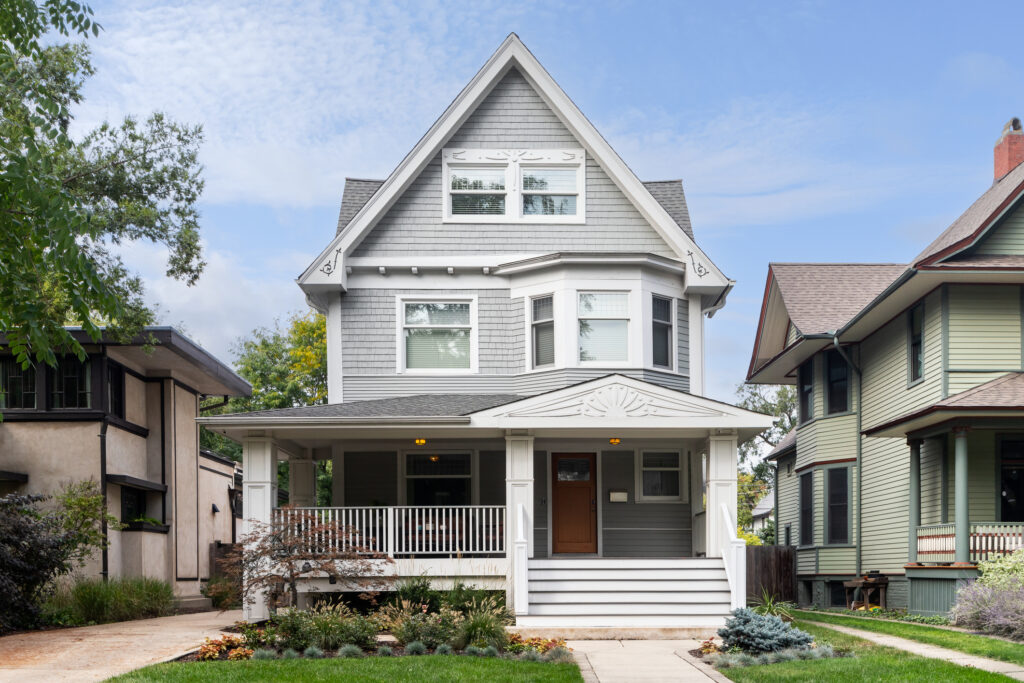Read why Financial Center owners proposing to convert 15 floors to multifamily


Owners of the 25-story Financial Center in downtown Des Moines are proposing converting 15 floors of the high-rise to multifamily residential, a move that is becoming increasingly common in downtowns across the United States.
Lawmark Capital has proposed adding up to 198 apartments to the building at 606 Walnut St. Nearly one-third of the units would be studio apartments; the remaining units would be evenly divided between one- and two-bedroom apartments. Also planned is an 8,000-square-foot rooftop outdoor area that would include a pool, as well as grilling, lounging and gathering areas.
The Des Moines City Council today will vote on whether to approve an amendment to a development agreement changing the use of the Financial Center’s lower floors from hotel to multifamily. The change is needed to allow Lawmark Capital to apply for state and federal historic tax credits, according to public documents.
In spring 2020, Lawmark Capital announced the high rise would undergo a nearly $60 million renovation that included the addition of a hotel on the building’s lower floors.

The pandemic, however, upended the hospitality industry, making it difficult to secure a suitable tenant, Mark Buleziuk, CEO and managing partner of Lawmark Capital, a Canadian investment company, told the Business Record. “We have pivoted to apartments,” he said.
Since the end of the pandemic, many office-based businesses have allowed their employees to continue working remotely, either full time or one or more days a week. The change has meant the need for less office space, both in Des Moines and nationally.
According to a January report by Moody’s Analytics, 2023’s fourth-quarter national office vacancy rate was a record-breaking 19.6%. (The previous record of 19.3% was set in 1986 and 1991.)
In Des Moines, more than 1 million square feet, or 17.3% of the nearly 6.3 million square feet of downtown office space, is vacant, according to CBRE Inc.’s 2023 fourth-quarter market report. In the first quarter of 2023, downtown’s office vacancy rate was 18.3%, according to CBRE.
“It’s nice to see developers taking advantage of the vacant office space and taking some of it off the market, which is helping to diversify our downtown populations,” said Cody Christensen, the city’s development services director. “More units help with affordability. … There continues to be a demand for downtown living, which we think will continue as amenities like MidAmerican Energy [Co.’s] Riverfront Park and the water trails are completed.”
For years, Wells Fargo occupied a large portion of the Financial Center. However, in 2019, the financial institution announced it was leaving the high-rise and consolidating its operations at its building at 801 Walnut St. The departure prompted Lawmark Capital, which acquired the Financial Center property in 2014, to begin the multimillion-dollar renovation project.
“We knew that it would be a real challenge to fill the balance of the building with office tenants,” Buleziuk said. “We started looking at a multiuse situation, and at the time, hotels seemed like the best option. … Back then, we couldn’t make apartments pencil out.”
When Lawmark Capital officials began making decisions about its future uses, the building wasn’t eligible for historic tax credits. It is now.
“The building is now 50 years old, and we have the potential now to access tax credits,” Buleziuk said about the structure, which was built between 1972 and 1973. “We still have a way to go to get across the finish line, but we’re headed in the right direction.”
In recent years, other downtown office buildings have successfully been converted to residential uses, Buleziuk said. “Those projects have gone through some uncharted territory to pave the way for residential in the downtown.”
In the past three years, nearly 40,000 square feet of net new office leases have been added to the building, said Jesse Bunney, director of operations for Lawmark Capital, about office leases in the upper 10 floors of the Financial Center.

“It’s been tremendous,” Bunney said. “I think a lot of that will be contributed to the fact that we’re thinking about our clients first. All of our amenities are for our office tenants as much as for our apartments. [Lease rates] are similar to other downtown properties, but the value is much higher.”
Amenities in the building are expected to include a restaurant, café, mail room and bike storage, all on the ground floor. The second floor, which has access to the downtown skywalk system, will include a business center, fitness center, clubroom and access to the rooftop deck. A dog park will also be included.
The underground, heated parking garage will include at least two electric vehicle charging stations.
An estimate on the cost to convert 15 floors of the Financial Center to multifamily is not yet available, Buleziuk said. Construction is expected to begin in the fall with completion by April 2026, according to a city document.


Kathy A. Bolten
Kathy A. Bolten is a senior staff writer at Business Record. She covers real estate and development, workforce development, education, banking and finance, and housing.










